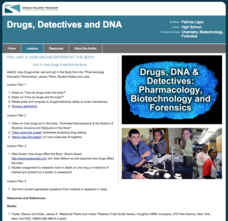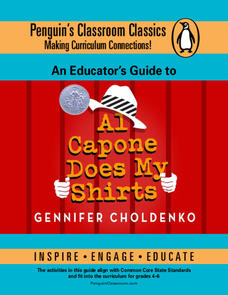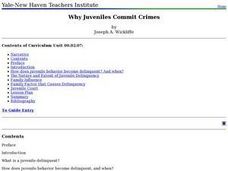Southern Nevada Regional Professional Development Program
“Double Double Speak Speak”
Bilateral suborbital hematoma? Call an audible? 404? Have fun with “the twittering or warbling of birds,” or as 14th century French speakers would say, have fun with “jargon.” Groups match specialized jargon with plain speech, decode...
Curated OER
Cold Sassy Tree: Vocabulary Development
Change places with your pupils, and let them teach their peers! Each learner signs up to teach a word from a list provided by the teacher (included here). Then, they complete a graphic organizer to help them develop a better...
Curated OER
Credible Sources on the Internet: What to Trust, What to Dismiss and When to Cite a Source
Wait, you mean researchers don't all use Wikipedia? Teach your class about intelligent research with a instructional activity about evaluating digital sources. The instructional activity starts with a quickwrite and includes vocabulary...
Japan Society
Akutagawa Ryunosuke and the Taisho Modernists
Japan's Taisho Period was a time when authors like Akutagawa and other Japanese modernists began to experiment with point of view and literary form, making the literature produced during this time period a natural choice for teaching...
Central Oregon Community College
Things Fall Apart Study Guide
“There is no story that is not true.” And Chinua Achebe’s Things Fall Apart, uses proverbs (“. . .the palm-oil with which words are eaten”), a compelling tragic hero, and historic events, to engage readers in the truth of his story of...
Florida Center for Reading Research
Vocabulary: Words in Context, Ask-Explain-List
Engage young readers in using context clues with this collaborative vocabulary activity. In pairs, children draw from a deck of cards, with each card asking a question about a context involving a specific vocabulary word. After...
All Things PLC
Professional!Learning!Community! Manual: Operationalizing!the!Big!Picture
Thinking of creating a Professional Learning Community at your school? Here's a 32-page manual that provides everything you need to get started.
Houghton Mifflin Harcourt
That’s Amazing!: Challenge Activities (Theme 3)
Synonym dominoes, anyone? As part of the activities designed for kids who have mastered the basic concepts in the Houghton Mifflin Harcourt thematic unit That's Amazing! kids are offered a variety of activities that include developing a...
Curated OER
Sentence Structure: Sentence Types
Sixth graders identify parts that make up different types of sentences with a grammar presentation. The last few slides prompt learners to complete 10 exercises in which they indicate whether each sentence is simple, compound, complex,...
University of Wisconsin
BEAM: Background, Exhibit, Argument, Method
Thinking of assigning a research paper? Get writers off on the right foot with a instructional activity that introduces the BEAM research model. Writers brainstorm the background of their topic, explicate the aspects of their topic,...
Museum of Tolerance
Developing Media Literacy
To protect young people from questionable content, many schools limit access. This resource suggests that because learners can so readily avail themselves to unrestricted Internet access, it is vital for 21st century learners to develop...
Museum of Tolerance
Just What Kind of American Are You?
Your parents were both in different countries. You were born in the US. Documents and application forms ask you to identify your racial or ethnic classification. Which box do you check? Class members collect documents and application...
Teach Engineering
What is a Nanometer?
Teams learn about the size of a nanometer by measuring objects and converting those measurements. A worksheet then tests the groups' abilities to use nanometers by having them determine the size of objects that are too small to measure.
EngageNY
The Computation of the Slope of a Non-Vertical Line
Determine the slope when the unit rate is difficult to see. The 17th part of a 33-part series presents a situation that calls for a method to calculate the slope for any two points. It provides examples when the slope is hard to...
EngageNY
Increasing and Decreasing Functions 1
Model situations with graphs. In the fourth installment of a 16-part module, scholars learn to qualitatively analyze graphs of piecewise linear functions in context. They learn to sketch graphs for different situations.
Film Education
Nineteen Eighty-Four: Orwell
Warning or prediction? Nineteen Eighty Four is the anchor text for a series of tasks that ask readers to compare the novel to the film as well as current events to those pictured in George Orwell's dystopian classic.
Social Media Toolbox
Verification
When you're putting together a great story, you've got to consider the source! Scholars discover the dangers of errors in reporting during the 14th activity in a 16-part Social Media Toolbox series. Groups collaborate to create a source...
Kenan Fellows
Unit 3: How Drugs Enter/Exit the Body
The third of a four-part series on Pharmacology teaches scholars how drugs enter and exit the body, how they act inside the body, how they affect the brain, and more. Over the course of the unit, groups complete two labs and one...
Scholastic
What’s the Good Word? Etymology Project Guidelines
Who named the shapes, or the days of the week? Should words be removed from the dictionary if they're no longer commonly used? Are there too many words in the English language? Language arts students explore these and additional...
Serendip
Genetics Vocabulary Review Game
Taboo, anyone?! A vocabulary review lesson asks learners to give their partners clues to help them guess the target word. The catch? There are words that are taboo. If they use the prohibited words, they don't get credit if partners...
Serendip
Mitosis, Meiosis and Fertilization Vocabulary Review Taboo Game
Can you describe a gamete without using the words sperm or egg? Scholars play a vocabulary review game where they try to get other players to guess their words. Each card has the target word as well as two related words they must not...
Penguin Books
An Educator's Guide to Al Capone Does My Shirts
It's hard to imagine that life on Alcatraz could be dull. A series of intriguing lessons take readers through the novel Al Capone Does my Shirts. Pre-reading questions introduce the text and a range of suggestions, from comic strips to...
Curated OER
Character Education: Perseverance
Students analyze and define the word perseverance as it applies to Martin Luther King, Jr. In this Martin Luther King, Jr. lesson, students discuss the book 'I Have a Dream: The Story of Martin Luther King.' Students analyze the meaning...
Curated OER
Why Juveniles Commit Crimes
Young scholars examine the reasons why juveniles commit crimes. As a class, they watch movies showing juveniles committing crims and discuss the impact on societies. They take a field trip to adult and juvenile courts and compare their...

























